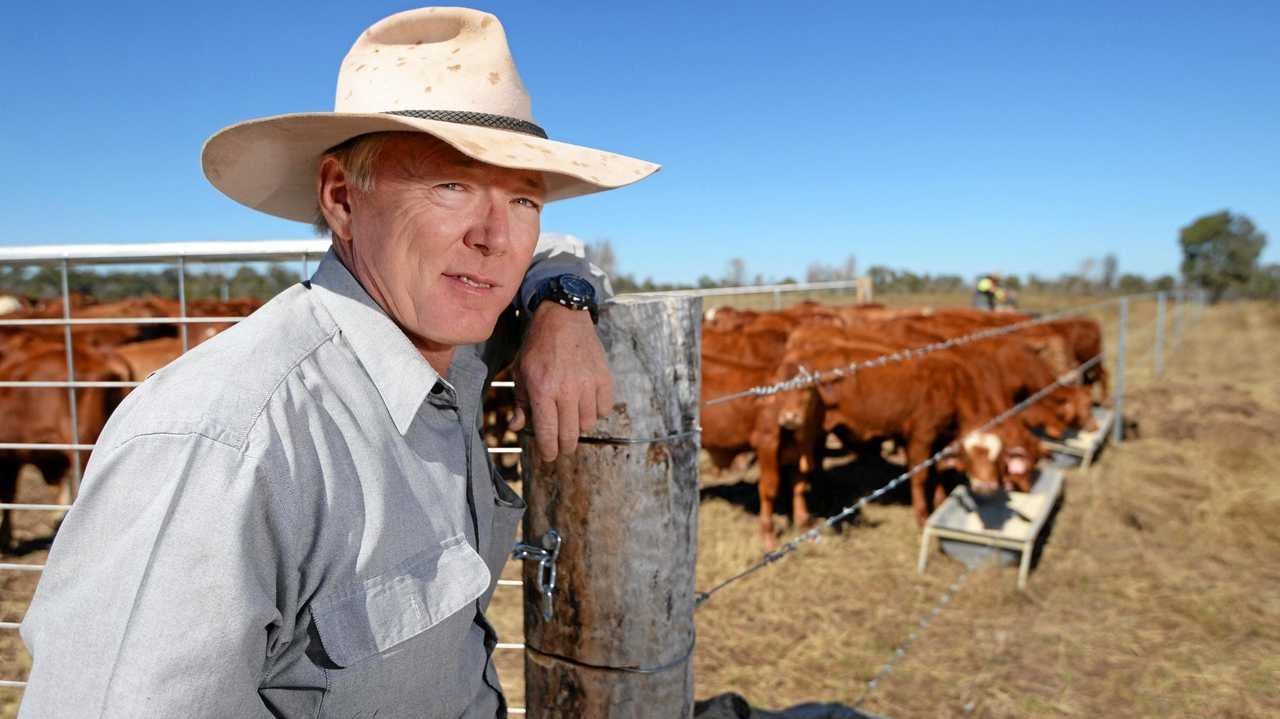
“We have all these industry bodies that are basically owned by corporations, so the average farmer just doesn't get listened to” Mick Alexander
In conversation with Mick Alexander, Rockhampton Queensland
MA: My name’s Mick Alexander. I'm a grazier in the Rockhampton area with a property called Bindaree and a business: CQ Organics. We’re an organic certified beef breeding operation and we supply our meat back to the local community and to the general public.
CR: You’ve previously been involved with the Farmer for Climate Action group, and spoken out about the need for urgent environmental action, has this been driven by you and your families own experiences with extreme weather events?
MA: So everything in front of you, all that was underwater in the last flood. When you came past the cattle yards on your way in you probably would have seen a loading ramp which is about 10 feet in the air, and the cab rail on the top of the loading ramp was the only thing out of the water so the flood was pretty deep and it was very very wet.
But I would have to say that the drought, and the extended drought period, probably impacted us more than anything else and has taken the biggest toll. For the first time ever, we had to de-stock, down to a third of our numbers and it's taken a few years to get back into the position we were pre-drought.
CR: From talking to other farming families in the area, and around Queensland, would you say that your operation has been hit particularly hard, or are these kinds of events more prevalent?
What’s tough is the fact that there are so many farmers and farming families going through extended dry periods and wet periods that we don't really get a good chance at getting our businesses working well before we get hit with another impact. It’s not just about drought, it's about floods on top of that. It's a flood-drought, flood-drought cycle that's just pushing everyone's land condition backwards. We've taken the heads off too many breeding females who have all been slaughtered and sent over to America for beef. It could take us a decade to get out of the problems we’re in now with our numbers. That goes for a lot of breeding operations that have got numbers that are so low, that they probably haven't been this low in 20 years. Our country’s got to a point where we just can't recover fast enough.
CR: You mention this flood-drought cycle, what would you say to people who suggest that this kind of cycle is just a normal feature of the Australian climate?
MA: Well, people keep talking about how climate change is cyclical and to some degree it is. But, I think it's a downward cycle. Over the last decade or more, we've gone through this cycle of having wet period, dry period, wet period, dry period but it’s getting more and more severe. Instead of actually giving our businesses and our land the chance to recover, we've just gone from a healthy position, maybe a decade or two ago, to one now where our pasture levels are down, our plant densities are down, and the soil is not growing. It's drying out quicker. It’s something that we need to work really hard at and understand how to recover from.
CR: So what do you think needs to be done?
MA: The average person can do a lot themselves, just in the fact of understanding that soils are probably the most important key to our sustainable future. Because if our soils are depleted of carbon they’re not going to hold water, and that water cycle is inextricably linked to climate change so the drier our country gets, the drier it will get in future.
But I guess it’s bigger than just the one person or an average person because the issues are worldwide so every person has to be involved in some way. I guess one of the things is choosing who the leaders are gonna be. I mean that’s a big issue, that’s something we don't talk enough about. We have all these industry bodies that are basically owned by corporations, so the average farmer just doesn't get listened to. I think that's the problem that we're having, it’s that we're being driven by the wrong people in nearly every situation. We're just being driven by people who don't understand the future of agriculture and where climate change fits in. I think probably the independent people who actually understand these issues are the ones to look out for because they don’t just have those party-driven policies and aren’t being driven by different entities. There are very few politicians that understand what’s going on, so choosing the right person to lead would be very important.
Photo Credits: Chris Ison
